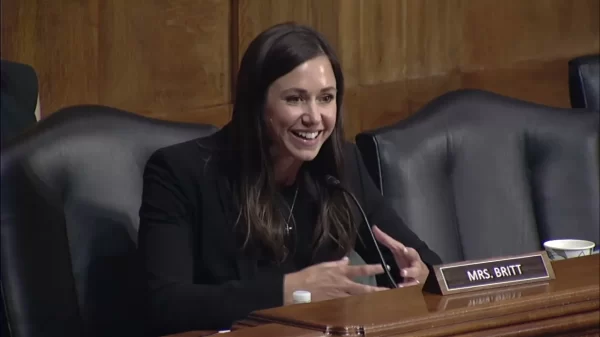By Bill Britt
Alabama Political Reporter
MONTGOMERY—Alabama lawmakers often hear that the State’s Medicaid program only provides the most basic services to its people. Comparing the most recent data on Alabama, Georgia, Mississippi and Tennessee, collected by The Henry J. Kaiser Family Foundation for FYI 2012, three of these southern states are similar in their delivery of Medicaid services, with Tennessee being the exception. It is worth noting that none of these states have expanded Medicaid under the Affordable Care Act.
Tennessee uses a managed-care model for delivering Medicaid benefits. The State’s TennCare was established in 1994, under Republican Governor Ned Ray McWherter. A healthcare reform measure is a program providing health insurance to people who are eligible for Medicaid, and to certain other individuals who lack access to insurance in the Volunteer State.
As a percentage of total Medicaid spending for FYI 2014, the four states’ portion is Alabama 1.1 percent, Georgia 2 percent, Mississippi 1 percent and Tennessee 1.9 percent.
As of June 2016, Alabama has 884,802 individuals participating in Medicaid and CHIP program or approximately 18.2 percent of the State’s total population, Georgia with 1,758,172 is 17.0 percent of its population. Mississippi 692,191 or 23.1 percent and Tennessee with 1,623,164 individual enrollees representing 24.4 of its total inhabitants
Federal law mandates that each state offer mandatory Medicaid services, such as Hospital Inpatient/Outpatient, Nursing Homes, Home Healthcare, Rural Health Clinics, Certified Pediatric/Family Nurse Practitioners and a few others.
A state may also offer optional benefits like Prescription Drugs, Clinics, Physical Therapy, Occupational Therapy, Speech, Hearing and Language Disorder services, Podiatry services, Prosthetics, Dentures, Chiropractics and more.
Alabama Medicaid does not offer Physical Therapy; Occupational Therapy; Speech, Hearing or Language Disorder services; Podiatry; Prosthetics; Dentures; or Chiropractic services.
In the four-state comparison, only Tennessee offers services for Speech, Hearing and Language disorders.
Tennessee, Georgia and Mississippi Medicaid recipients are furnished with Podiatry treatment, but Alabama recipients are not.
All four states offer Optometrist services through Medicaid.
Only Tennessee provides Psychologists, Physical Therapy, and Occupational Therapy for Medicaid recipients.
Alabama does not offer adult Dentistry, but they other states do.
Nationally, the CHIP and Children’s Medicaid services both offer the following benefits:
-Dentist visits, cleanings and fillings
-Eye exams and glasses
-Choice of doctors, regular check-ups and office visits
-Prescription drugs and vaccines
-Access to medical specialists and mental health care
-Hospital care and services
-Medical supplies, X-rays and lab tests
-Treatment of special health needs
-Treatment of pre-existing conditions
Total Medicaid spending per state for FYI2014:
Alabama $5,241,269,869.00
Georgia $9,485,829,472.00
Mississippi $4,884,227,315.00
Tennessee $9,263,093,195.00
While this is not an exhaustive comparison of every Medicaid service supplied by these four states, it is, however, an indication that over 20 years ago, Tennessee made choices Alabama is still struggling to make. It also shows that Alabama’s Medicaid benefits are “bare-bones,” but not by much when measuring them against Mississippi and Georgia.
Other materials Medicaid materials offered/declined for the four states:
CHIROPRACTICS, DENTAL, DIAGNOSTIC PREVENTATIVE SERVICES, PODIATRY, OPTOMETRISTS, OCCUPATIONAL THERAPY, PHYSICAL THERAPY, PSYCHOLOGIST, PUBLIC MENTAL HEALTH CLINICS



















































